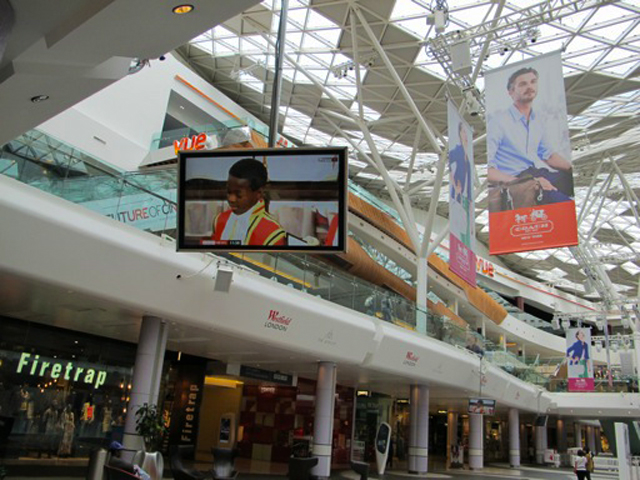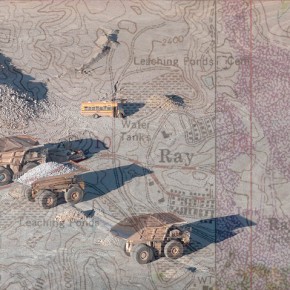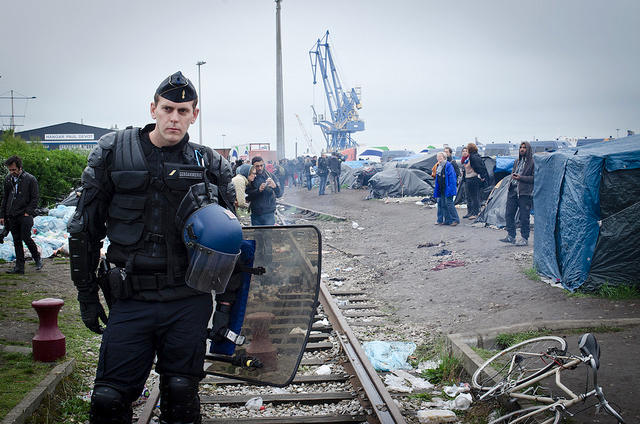Forty-eight hours before the British government was to announce new initiatives to combat Muslim militants, a new police report indicated how much worse of a threat they have become. As The Daily Telegraph reported, a new generation of extremists, driven underground by law enforcement tactics, is now coming of age despite harsh measures to contain it.
Prepared for the Association of Chief Police Officers by the Universities’ Police Science Institute at Cardiff University, the report’s date of publication was no coincidence. Its conclusions are framed to underline why the British government must move faster introducing reforms to Labour-era policy initiatives for dealing with Islamic radicalism.
Tellingly The Daily Telegraph’s précis of the report makes no mention of the social or economic context informing the continuing radicalization of British Muslims. Rather, emphasis is placed on the leadership of radical imams who are even able to exert influence from jail.
It’s an old fashioned narrative, devoid of novelty. There’s no Arab Spring, War on Terror, Israeli-Palestinian conflict or global economic crisis to help make any of it the least bit meaningful. And the significance of this report goes unstated, as if its content should be self-evident, both in terms of law enforcement’s need to respond and the broader political debates to which it speaks.
Take, for example, how debates about terrorism intersect with domestic discussions of multiculturalism. Just two weeks before, Britain’s Office of National Statistics released an equally significant report: a comprehensive breakdown of England and Wales’ ethnic makeup. Interested in the statistics that might explain British paranoia about minorities? The findings of this survey are enormously revealing.
As of 2011, 1 in 6 Britons was now non-white. Nearly a million additional UK citizens were found to be of mixed race background. The last time such a survey was conducted was in 2001. Since that time, white British population levels have remained flat. Meanwhile, the non-white population has grown by 37%, to 9.1 million, while the mixed race population has risen by almost fifty percent, to 986,000.
Queried by The Guardian, Migration Watch UK’s Sir Andrew Green sounded a note of alarm, stating that if immigration continued at the same rate, within 20 years, “immigrants will account for half of new households.” Green blamed the previous Labour government. “This rise is part of Labour’s legacy,” he told the liberal newspaper without a trace of self-consciousness. “Whether they meant to or not, they changed the face of Britain forever.”
Whether or not you agree with Green, it makes sense for a society of fifty-one million persons to display anxiety under such circumstances. England is undergoing immense ethnic change. To integrate that many foreigners in ten years time is not easy. Still, Lord Green’s alarm is disturbing. On what grounds might he reasonably object to such immigration? That it upsets his cultural equilibrium, by making it easier, for example, to buy chicken tikka masala at Sainsbury’s than steak and kidney pie?
Or is it that immigrants are always a security risk? In all likelihood, Green’s response would draw from both possibilities, without offering anything of actual substance. This is the problem with British conservatives. Press them for a rational explanation of their difficulty with “foreigners”, and the best they can do is provide non-answers, such as that Muslims refuse to reconcile themselves to the “British way of life.”
Such lines are habitually offered, as though on cue. They communicate little, except to perhaps to suggest a party line no one quite knows how to reformulate. Nevertheless, the repetitiveness helps obfuscate the fact that most British Muslims, for example, have no difficulty reconciling Sharia with civil law. So what’s wrong, then? Is there really an extremist Islamist minority demanding collective punishment? Or is it that conservatives are looking for excuses to re-subordinate communities they once ruled abroad?
Fear of equality cannot be underestimated. For a country so used to dominating the developing world, to now play host to it, to award its peoples citizenship and civil rights, is a huge challenge. Irrespective of how distant the British Empire now seems, Tories would not be attempting to tame multiculturalism if they were not still fundamentally beholden to the social hierarchies of the colonial era. To them, pluralism doesn’t mean modern London. It means the 19th century British Raj.
No wonder David Cameron would adopt such an aggressive posture. He articulates the despondency of an ethnic aristocracy increasingly anxious about its ability to hold on to political power. Unable to turn the clock back, or to send everyone home, the Tories denigrate everything even remotely positive about the contemporary United Kingdom. It is a recipe for an especially complex national decline. Self-destructive does not even begin to describe it.
Britain has had enough time to reconcile itself to its diversity. To take such a hard line, to constantly cry wolf about extremism is to encourage separation, not pluralism. If it is extremism that the Tories are worried about, they show no willingness to recognize how they foster it themselves. They are their own worst problem, as well as Britain’s. As the old saying goes, if you want something badly enough, your wish will eventually be granted. But nobody would win in this particular scenario.
Westfield Mall photograph by Joel Schalit




